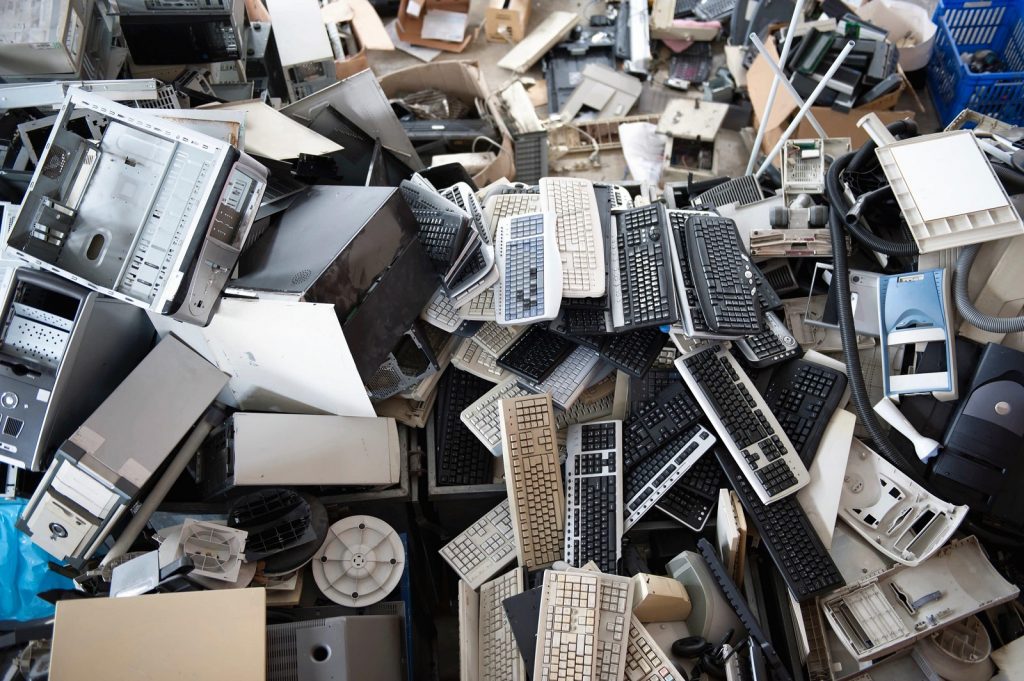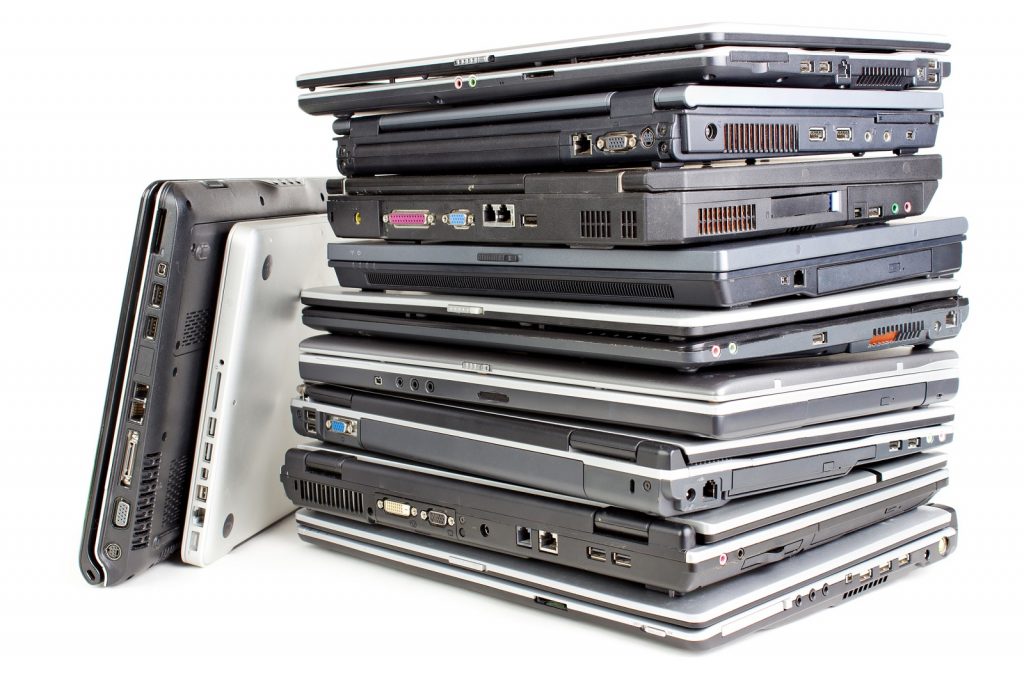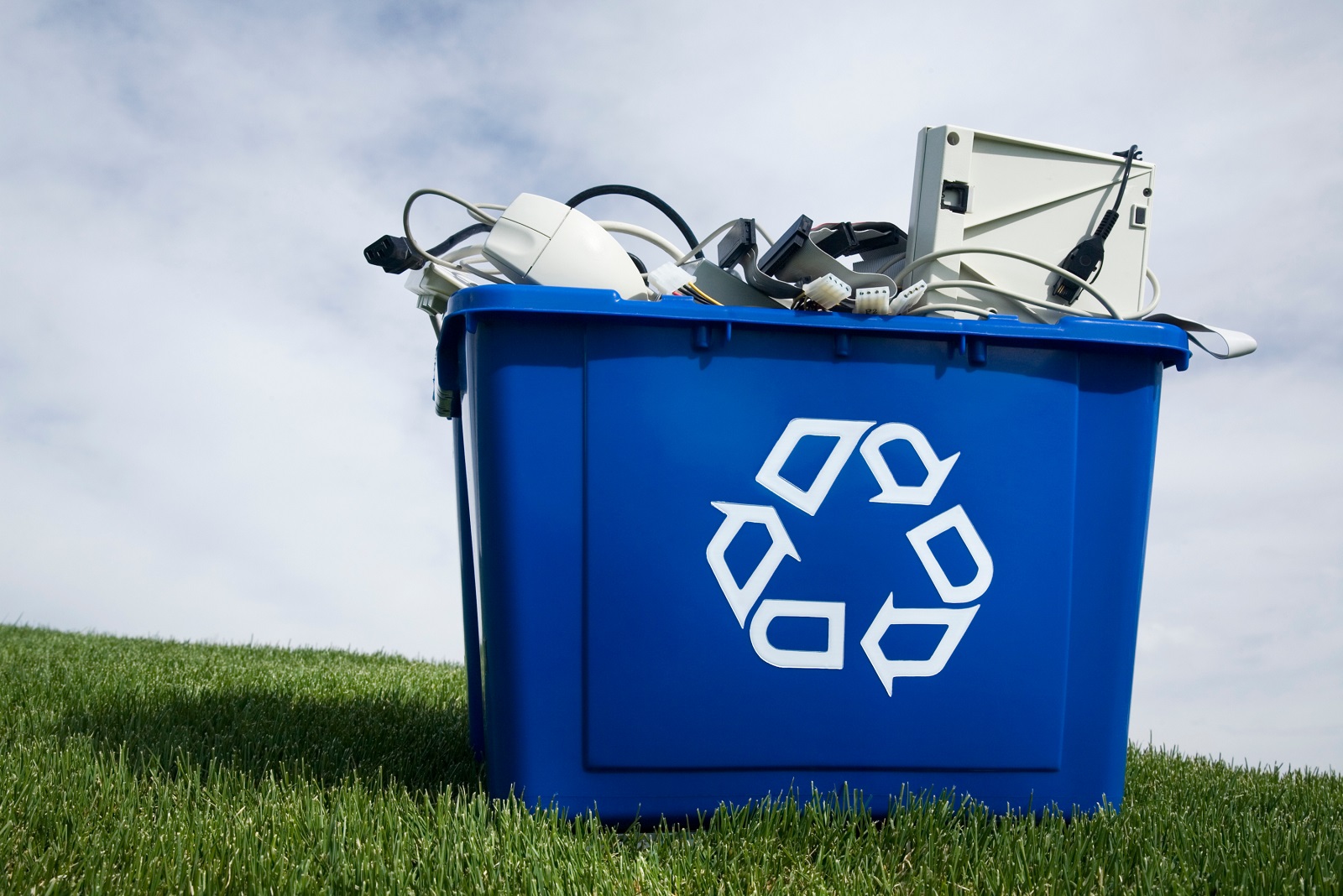It’s no secret that Americans are obsessed with technology. From big screen TVs to wearable tech, tablets, smart phones and drones, our love affair with electronics is in full bloom. We crave the latest versions of electronic devices. We want the most up to date equipment for entertainment, work, and communication. Unfortunately, the shiny new electronic tools and toys eventually wear out or become obsolete. So where do the electronic rejects end up? Is there enough information about how to recycle electronics the right way?
Recycle Electronics Responsibly, Safely and Environmentally
Approximately 6.92 million tons of e-waste was disposed by American consumers and businesses in 2019. A whopping 48.6 million tons of e-waste were produced worldwide. In that same year, only about 15% of electronic waste in the U.S. and 17.4% worldwide was recycled. This is not acceptable if our goal is to help the environment. Education is needed to inform electronic users how to recycle electronics responsibly.
Why is it important to recycle electronics? The toxic materials from electronic waste, including polychlorinated biphenyls, mercury, lead, chromium, cadmium, and other heavy metals, affect the environment in 3 ways:
- Pollution and air contamination from discarded, dismantled, and melted electronic materials can cause respiratory ailments in susceptible people.
- Soil gets contaminated from improper disposable in landfills. Harmful metals, chemicals, and plastics leach into the soils.
- Water is also contaminated as affected soil mixes with groundwater.
However, there are a number of environmentally responsible ways to dispose of and recycle electronics.
E-Waste Recycling
In addition to hazardous materials, today’s electronics also contain valuable materials, such as non-precious and precious metals, plastics, and more, that can be safely recovered and used to produce new products.
Customized Industrial Recycling Programs begin with Texas Recycling 214-357-0262
Dropping your old electronics off at a local recycling facility can be a potential option, but due to state regulations not all recycling companies can accept e-waste. Fortunately, there are several online resources to help make the task of finding a local e-waste recycler easier. Some include:
- The EPA lists retail locations to donate and recycle electronics
- Greener Gadgets searches for e-waste recycling locations by zip code
- In North Texas, Goodwill accepts electronics donations for recycling
- Check your local municipalities and organizations for more opportunities to recycle electronics. For example, Plano has periodic community recycling events.

Manufacturers Recycle Electronics
A number of electronics manufacturers also offer recycling programs. In addition to helping the environment, these programs are also good for their bottom line. For example, you can read Apple’s report on the use of recycled materials in Apple products here.
While some manufacturers require that you ship your unwanted electronic devices to them, others have drop-off centers located in larger metropolitan areas. For the most up to date information, check the manufacturer’s website for recycling programs, trade in offers and instructions.
Commercial Customized Recycling Programs begin with Texas Recycling 214-357-0262
Did you know that Amazon has a trade-in program, too? Consumers can trade in gently used electronics in exchange for Amazon gift cards and discounts on future purchases of Amazon devices.
Donate Your Usable Devices
If your electronics are still in relatively good working condition, donating them to a reputable non-profit is a great way to get them out of that closet or drawer and into the hands of those who really need them. Don’t forget to get a receipt if you’re planning to itemize deductions on your yearly taxes!
Again, Goodwill, one of the nation’s largest charitable organizations, accepts old computer and peripherals through Dell Reconnect. Electronic devices that cannot be refurbished are responsibly recycled.
Techsoup.org’s Refurbished Computer Initiative Program (RCI) “provides high-quality, competitively priced desktops, laptops and other computer hardware to eligible nonprofits, charities, and libraries.”

Protect Your Privacy When You Recycle Electronics!
Regardless of whether you recycle, trade-in or donate your old devices, it’s important that you thoroughly remove any sensitive personal or business information before doing so. Contrary to what many believe, simply deleting your data, reformatting, and resetting your device to its factory default settings won’t prevent identity thieves from accessing your data.
This Consumer Reports article, an oldie but a goodie, walks you through the steps necessary to ensure the safety of your information on a variety of devices.
In the Dallas/Fort Worth area, consider a local company like Action Shred of Texas for secure hard drive destruction. Action Shred utilizes a process to crush the hard drive platters and control board rendering the disc unusable and the information irretrievable. They provide an audit trail and official Certificate of Destruction, proving your data has been thoroughly destroyed. Call Action Shred at 214-352-0113 for more information and pricing.
If more companies and individuals recycle electronics the right way, we can continue to enjoy the latest technology without sacrificing our responsibility to the environment.
Recycle Commercial and Industrial Metals, Paper, Cardboard
Do you want to recycle industrial and commercial materials like scrap metal, paper, cardboard and more? Texas Recycling works with businesses and individuals to recycle responsibly and affordably. From scheduled pick-ups for industrial and commercial recycling, to our Public Buy Back Center for individuals and small businesses, we offer recycling solutions to meet your needs and budget. Help both the environment and your bottom line by calling Texas Recycling at 214-357-0262 or contact us.

